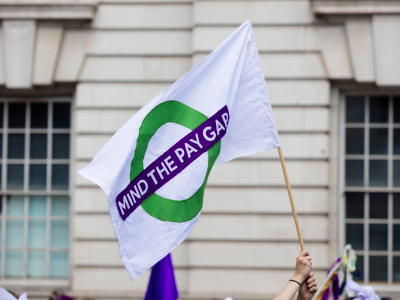
The Equality and Human Rights Commission (EHRC) has launched #PowertotheBump, a campaign to help young expectant and new mothers understand their rights at work.
After conducting a survey the EHRC concluded that young women have lower awareness of their rights in the workplace and are typically in less stable employment situations. They were also found to lack confidence to talk to their manager about things that were troubling them and felt under pressure to leave their job rather than raise issues with management.
EHRC has rolled out the campaign in partnership with The Young Women’s Trust, Fawcett Society, Maternity Action, The Royal College of Midwives and the TUC.
Further EHRC research, published in partnership with the Department for Business, Innovation and Skills, has also found that young mothers are significantly more likely to experience pregnancy and maternity discrimination, with six times as many under 25 year olds than average claiming to have been dismissed from their jobs after revealing they were pregnant.
One in 10 mothers under 25 (10%) also reported they had left their employers as a result of health and safety risks not being resolved (4% average).
The campaign will appear on twitter under #PowertotheBump to encourage young mothers to share their experiences and rights, to support women in asserting their rights. The campaign will include a selection of blogs from young mothers and twitter chats with parenting groups.
Rosalind Bragg, Director of Maternity Action, said: “Many young women calling our advice line face serious problems when they tell their employers that they are pregnant. They face a sudden drop in the number of shifts they are offered, unsafe working conditions, harassment and unfair dismissal.
“Pregnant women and new mothers have the right to a safe workplace which is free from discrimination. It is important that young women are supported to know their maternity rights and to take action when their employer breaks the law.”
Carole Easton, Chief Executive of Young Women’s Trust said: “Sadly it is not surprising that young women are those who face the greatest discrimination. Through our own work with young women who are struggling to live on low or no pay, we know many young mothers are afraid of speaking out about discrimination for fear of losing their job, and in too many cases are never made aware of their employment rights to start with.
“The scale of the issue is however worrying. Although some employers will do better than others, we are no longer talking about isolated instances but an endemic problem that affects the health and long term prospects of women in most workplaces.”
“We hope that the #PowertotheBump campaign helps young women understand their rights and give them the confidence to share their experiences and speak out against discrimination.”
Amy Leversidge Employment Relations Advisor at the Royal College of Midwives (RCM) said: “It’s very worrying that the cases of young women being denied time off to attend antenatal care are increasing. Women who miss antenatal appointments miss out on essential screening tests and valuable advice around smoking and nutrition.”
“Discrimination at work can cause stress, anxiety and depression which can potentially have an impact on the health of the woman and her baby.”
‘We hope that this innovative campaign, #PowertotheBump, will increase awareness surrounding pregnancy discrimination in the workplace and give young working women the confidence to speak up if they have been treated in an unjust manner.”
#PowertotheBump tips:
- Talk to your boss
It is good to have early conversations with your line manager. - Attend your antenatal appointments
You are entitled to take reasonable paid time off during working hours for antenatal care. You should be given the time to travel to the appointment or class. - Plan your maternity leave
The most important thing is to keep talking with work, tell them your wishes and get it all agreed in writing so you feel in control. You need to tell work your maternity leave plans around the 6-month mark – that’s 15 weeks before the baby is due. - Talk about health and safety risks
Always talk to work about any risks that are worrying you. Your employer has a duty to look after the health and safety of everyone at work. You can ask to see a copy of the general risk assessment to make sure you’re comfortable and safe and that any risks are resolved. - Reduce your stress
Don’t cause yourself additional stress. You shouldn’t experience a negative impact on your health and stress levels, be given an unsuitable workload or be treated unfavourably and feel less valued.







